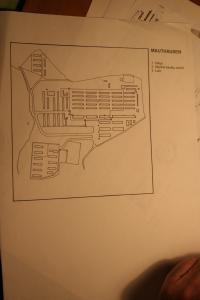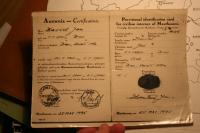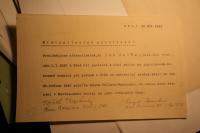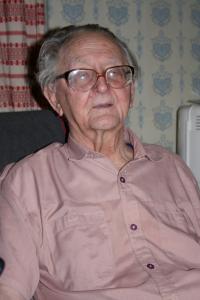Everyone wanted to stay as far from the stock-whip as possible.

Stáhnout obrázek
Jan Zavřel was born January 1, 1920 in Brno. As a university student in Brno he took part in demonstrations against the occupation. In the beginning of 1940 he decided to escape and join the Czechoslovak foreign army. With two friends he arrived at the Austrian-Slovenian border, where they were subsequently apprehended by border patrol. He was detained in prisons in Villach and Klagenfurt. Then he spent several weeks in the concentration camp Dachau. He was detained in the concentration camp Mauthausen until the end of the war. Majority of his time there was spent working as a structural engineer. At the end of the war the camp was liberated by the Americans. Jan Zavřel spent several weeks with them before setting out for home. After the war he reapplied for university study and he graduated from the Faculty of Civil Engineering at the Czech Technical University. After the communist assumption of power he remained apolitical and did not join the party, despite the urging of his former fellow prisoners, one of which was Antonín Novotn ý, who later became president.



